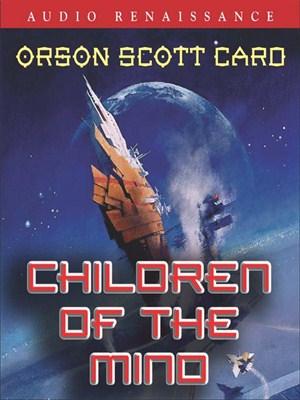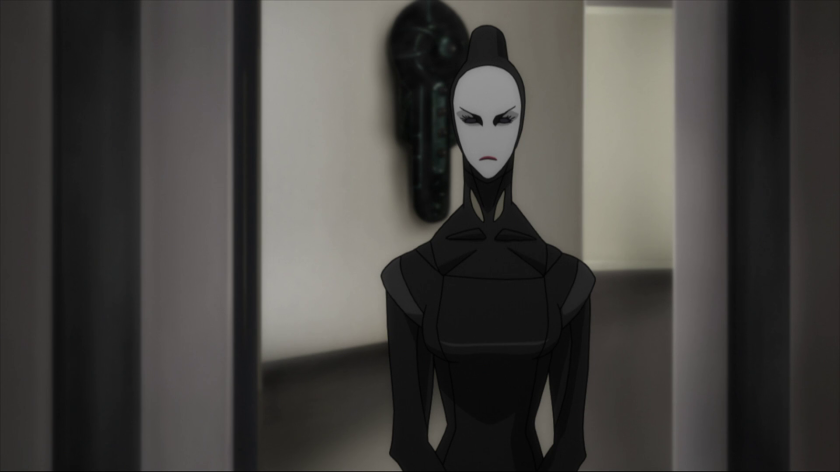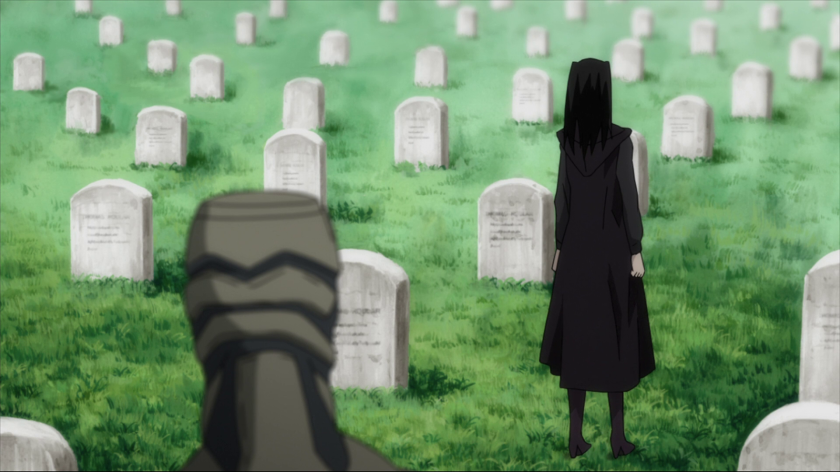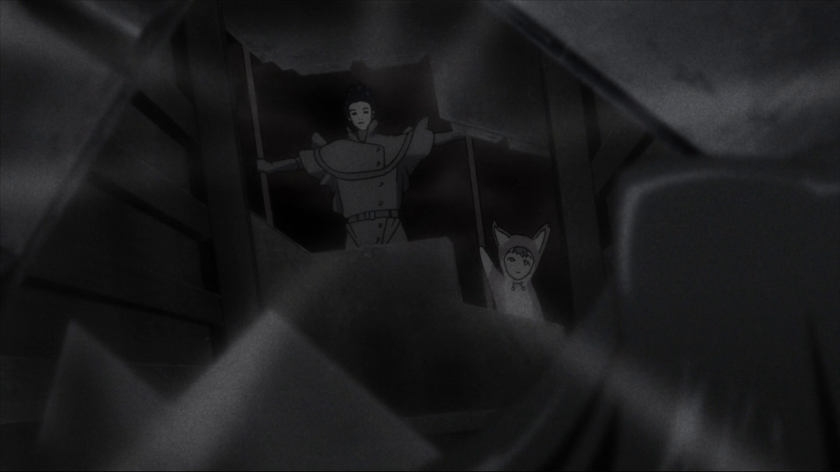
‘Children’ is an appropriate word in the title. As for the ‘Mind’, not so much. Card’s finishes his quadrilogy – which started with two classics – on a ridiculous low. It’s not that the novel is bad, but that the flaws are brand new. Card succumbs to all the flaws he avoided when he first started.
Why did the two books split up? Considering how much Card had to say in Speaker for the Dead, it makes sense. His intelligence and complex philosophy still shines through. Instead of shining through storytelling, it’s one essay after another. Sometimes it’s inside the characters’ heads. Sometimes they ruminate and we get the whole thing, uncensored and unabridged. If this was part of a style, fine. It’s not. Rather, it’s a collection of notes – events, ruminations, extended dialogues that all should’ve been trimmed down.
The quadrilogy has philosophical weight, but in the end these novels aren’t pure philosophy. There is an engaging story beneath them about saving the world and what it means to be human. The constant ruminations are like a decent guitar solo extended for 10 minutes. One or two profound phrase is okay since it helps us focus on the themes. When there are whole paragraphs where nothing happens, that’s when you know the editors were dead.
If Card is so against destroying other species, why are the editors extinct? This is a flaw I encounter a lot when reading works by unpublished writers. They’re confused, not sure entirely what their story is about and afraid the audience won’t get them. The fear is justified considering how everyone loved Fight Club for the wrong reasons. So they fill their stories with character thoughts and speculations.
When I get these stories fresh from the oven, I don’t mind. Nobody has gone over them to trim the unnecessary stuff and what should remain as notes. A story doesn’t come fully formed from our minds. We must write it down, see how it looks like on paper and then play around with the pieces. You don’t really know how your story works until you actually write it down. If I read a story where half of it is notes the author should’ve kept to himself, that’s fine. They needed to write this to get the information out of their heads, to acknowledge it exists.
When I read a story filled with notes by a published author, I get angry. Card doesn’t show ideas. He doesn’t even let characters’ personalities filter them. Philosophies are the main characters now. The novel is filled with philosophical conversations and ruminations, and it’s all so disconnected from the story.
Philosophical essays contain ideas, but fiction is how we imagine them taking from. We need literature because that’s how we imagine the effect philosophies have on our live. I can write an essay about how everyone should have assisted suicide easily available for them, but through fiction I can imagine how such an idea might impact society.
The danger of piling philosophical conversations and ruminations in your novel is this. If they overpower the story, they lose connection. We no longer see the ideas in action, so we no longer see the importance. A good story doesn’t just give me insight into an idea, but makes me care about it. By having an emotionally engaging or thrilling story, I get emotionally invested and see the importance of the idea.
The philosophical conversations have no element of humanity in them. They rarely inform us about the characters or their big worldviews. Watching them is like watching a discussion on CMV-Reddit. You see the ideas isolated from a person dissected, analyzed and evolved. That’s fascinating, but that’s not a story. Moreover, CMV has an abundance of people. This novel written by one person. It’s really one long monologue in disguise, which is a shame. A monologue by a person – especially a talented writer like Card – could’ve been fascinating.
Children of the Mind isn’t an unrestrained novel. It’s a novel without purpose that jumps from topic to topic but in the end goes anywhere. We shouldn’t kill other people. We should try to understand people. Haven’t we heard this all before? Wasn’t it more convincing when characters were either morally grey, or when we saw the weight of heroism? The absence of Ender makes his character duller. Without him to show us the weight of his virtues, everyone just opens up a fanclub.
Everyone also acts like douchebags towards each other. Suddenly 21st-century internet lingo caught on and characters swear. Dirty words don’t offend me, but their sudden appearance is odd. Even more similar to stereotypical internet talk is how many dialogues go. So much belittling, being sarcastic and condescending you have to wonder why these people are doing with each other. Nothing actually happened between this novel and Xenocide, so when did everyone started swaggering like Tarantino?
The basic idea behind the ending couldn’t have been better. It ties the novel directly to the first one, but it’s still anticlimatic. Besides that tie to the first novel, nothing actually happened in that ending. The conflict was solved, events happened but no conclusions reached. The people of Lusitania may feel better and may be able to expand their colony, but I’m in the same place.
Children of the Mind gets by only because it’s a part of the Ender Saga. There are interesting ideas, but Card is trying hard to push himself when he ran out of things to say. It even lacks the occasional outrageous moment of Xenocide. That novel was empty, but you could trim it to a decent novella. A kind editor should’ve told Card that he’s writing a story, not a hodge-podge collection of conversations with self, ruminations and the occasional encounter with aliens. At least the first two books are constructed well enough they stand on their own.
2 children out of 5 minds






